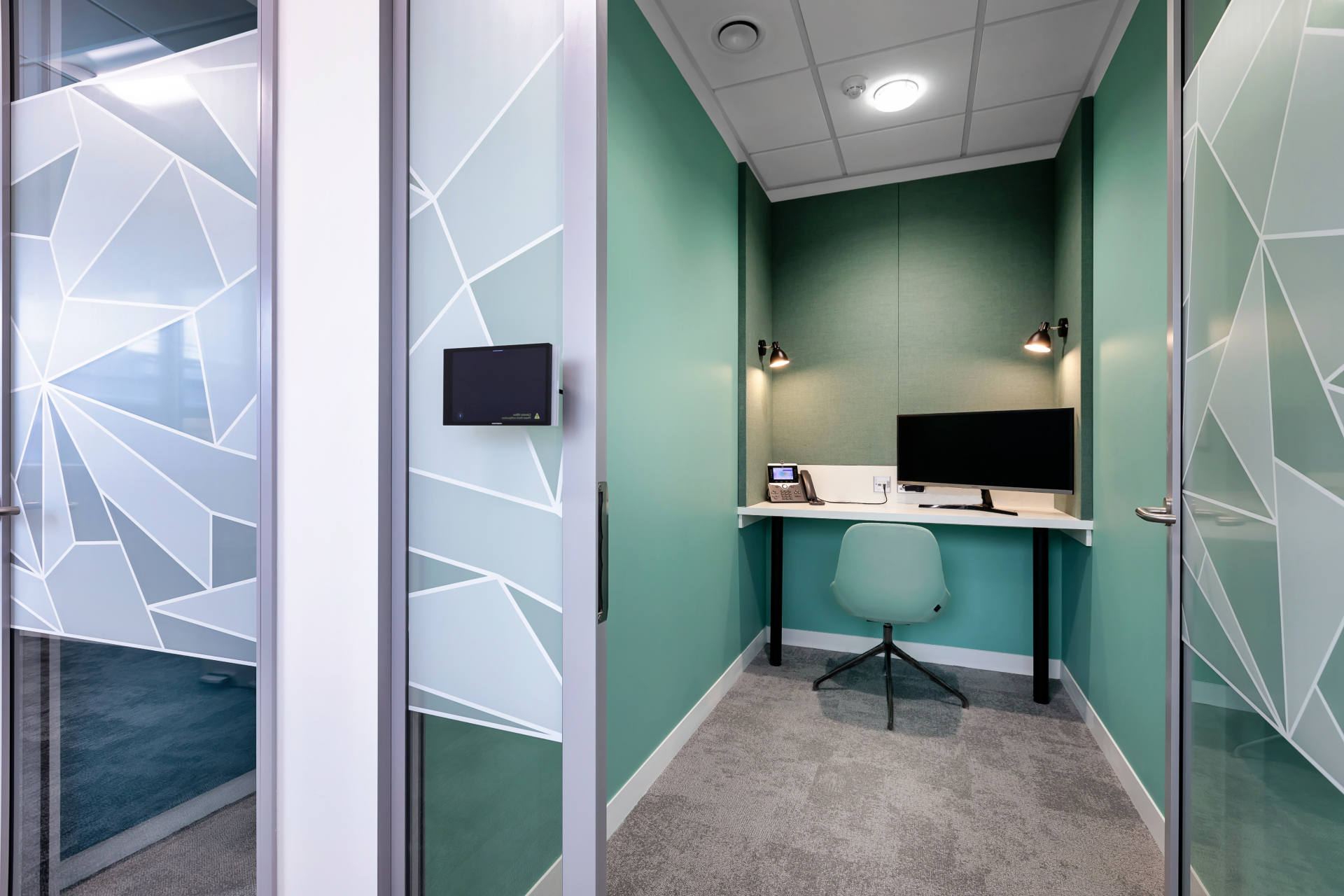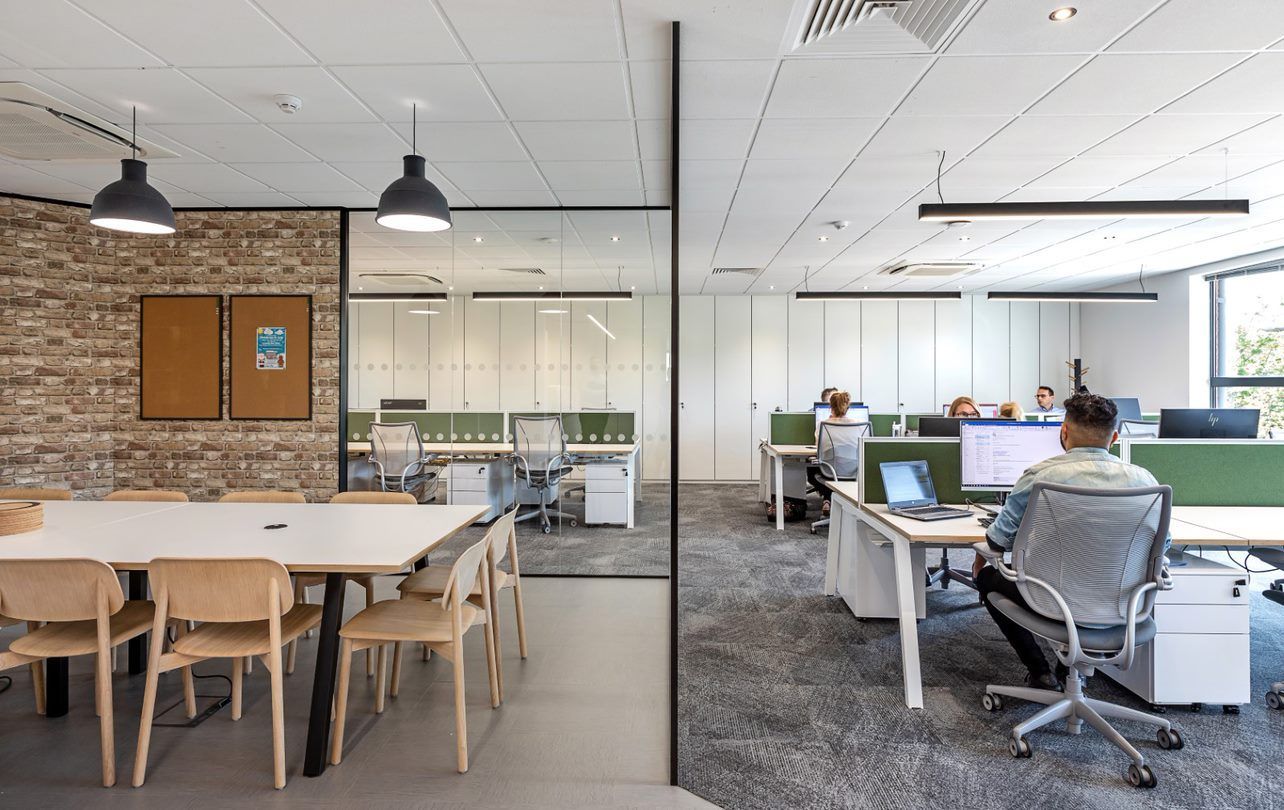Global survey predictions for Covid-19 effects on work
Chris Lunn • September 14, 2020
There have been numerous forecasts on how working life will be affected as we steadily emerge from the impact of the Covid-19 pandemic restrictions. However, when the highly reputed international recruitment specialists Robert Walters Group surveys business leaders and professionals from over 2000 global organisations in 31 countries, we believe that the findings are well worth studying.
The survey report is titled Returning to the New World of Work: A Practical Guide for Business Leaders and covers the predictions and opinions of decision makers across a range of industry sectors, including banking and financial Services, manufacturing, technology and retail. As commercial interior design and office fit-out specialists, Glenside naturally has a significant interest in how both employers and employees feel about the future of the workplace.
Flexible working models
Impact of Covid-19 on employment has been dramatic. The report states that “50% of businesses surveyed implemented headcount freezes and paused all hiring activity. 20% terminated temporary or fixed-term employee contracts, and 12% made permanent staff redundant.”
Working from home was an increasing element in the agile working trend before the outbreak of the pandemic and lockdown made it a necessity rather than an option for many workers. This has had positive effects in a number of cases, with 78% of employers reporting at least equal and, in some cases, increased productivity from their remote workers.
However, most of those surveyed opted for flexibility and maintaining the office as the main place of work: "A partly flexible approach is favoured by most workers. 40% of professionals would opt to work at home at least one day per week. 27% of employees would like to limit working from home to a few days per month."
Changes to working spaces
The Robert Walters Group survey explains how some experts believe that open-plan offices can be redesigned to ensure the safety of people at work, while others say that "the pandemic is the final straw for the open office."
We would agree with the first more optimistic prediction. In our recent blog post titled “Are the days of hot desking over for good?” we highlighted a BBC interview with Paul Cheshire, Professor of Economic Geography at the London School of Economics, who pointed to 20 years of "really good persuasive research" that people were more productive when working together and that "people are innately social animals."
He predicted options such as localised desk sharing in specialised areas could be deployed to create spaces for safe collaboration. As experienced commercial interior designers, we at Glenside have a range of further solutions to offer to create safety in the workplace while meeting the need for personal contact and teamwork.
Recruiting at a distance
The need for social distancing restrictions caused by Covid-19 has had a profound effect on face-to-face meetings, and this has included recruitment interviews.
The Robert Walters Group reports that "Video interviewing is the most established practice in the remote hiring journey" and that "Of our survey respondents, 40% already have video interview solutions in place. A further 50% are interested in adopting this kind of technology."
However, the authors make the point that "Whilst video interviewing technology is definitely improving it’s still a long way off being able to replicate the benefits of meeting a prospective employee face to face and building a relationship."
This is undoubtedly true, but it may not be necessary at the early stages of the recruitment process. For instance, the Spectator Magazine's Internment Policy chooses candidates entirely through project work. As the Editor Fraser Nelson explains: "We don’t ask for CVs: we don’t care where (or whether) you went to university. When we judge applications, we don’t even look at names: our HR department takes them out."
This may not be a suitable approach for every business, but at a time when travelling to interviews and meeting face to face is problematic, it is an option worthy of consideration.
Innovations in the workplace
In another of our recent blog posts "Making the case for office life" we focused upon a Forbes article that made a strong appeal for businesses to retain their office premises as places where employees can meet, socialise, collaborate and innovate. This supports the views of Professor Paul Cheshire and those of Glenside too.
As the Robert Walters Group survey indicates, working professionals are happy to work from home on a limited basis, but not as a permanent solution. The office is, and we believe always will be, the vital and dynamic hub for most businesses.
View more insights: Office Design I Industrial Property I Laboratories I Wellbeing & Productivity I Company Updates
Join Our Mailing List
Thank you for contacting us.
We will get back to you as soon as possible.
We will get back to you as soon as possible.
Oops, there was an error sending your message.
Please try again later.
Please try again later.
All data is handled inline with our Privacy Policy and you may unsubscribe at any time.
Our showroom.
16 Commercial Road, Reading, Berkshire, RG2 0QJ
Quick links.
Glenside Commercial Interiors is a trading name of Glenside Commercial Interior Projects Ltd registered in England with Registration Number 14000423. VAT No. 408 5792 72
© 2025
All Rights Reserved




